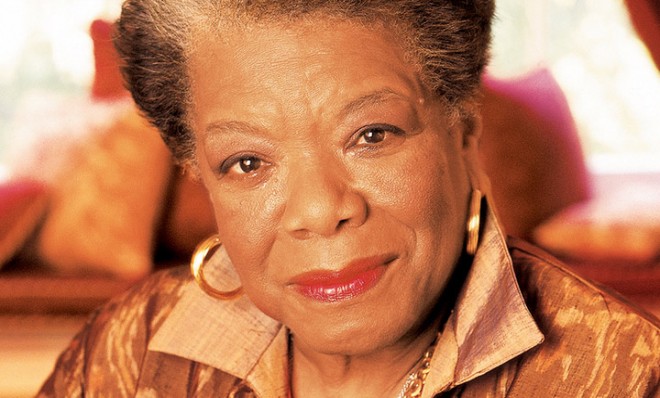Maya Angelou's 6 favorite books
The acclaimed poet and memoirist names six works that influenced her in her life and career

A free daily email with the biggest news stories of the day – and the best features from TheWeek.com
You are now subscribed
Your newsletter sign-up was successful
A Tale of Two Cities by Charles Dickens (Dover, $3.50). Early on, I was so impressed with Charles Dickens. I grew up in the South, in a little village in Arkansas, and the whites in my town were really mean, and rude. Dickens, I could tell, wouldn't be a man who would curse me out and talk to me rudely.
The Bible. I love the melodies in the Old Testament, how preachers highlight them when they read from the Scripture. But I was influenced forever by the New Testament. I love the Beatitudes, informing us that the meek shall inherit the earth.
Look Homeward, Angel by Thomas Wolfe (Scribner, $18). I've read everything Thomas Wolfe ever wrote; my brother and I memorized whole chapters of You Can't Go Home Again and Look Homeward, Angel. It's hard to select just one of Wolfe's books, but his story of a man who leaves his North Carolina town to seek a better life was probably the most important to me.
The Week
Escape your echo chamber. Get the facts behind the news, plus analysis from multiple perspectives.

Sign up for The Week's Free Newsletters
From our morning news briefing to a weekly Good News Newsletter, get the best of The Week delivered directly to your inbox.
From our morning news briefing to a weekly Good News Newsletter, get the best of The Week delivered directly to your inbox.
The Collected Poetry of Paul Laurence Dunbar (Univ. of Virginia, $22.50). When you are put down by the larger society and there's a poet who compares the color of your skin to chocolate and brown sugar, you fall for it, because you need it. Paul Laurence Dunbar — who was one of the great poets of the 19th and 20th centuries — wrote about African-Americans, and he showed me the beauty of our colors and the wonder of our music.
Little Women by Louisa May Alcott (Bantam, $4). When I read Alcott, I knew that these girls she was talking about were all white. But they were nice girls and I understood them. I felt like I was almost there with them in their living room and their kitchen.
Invisible Man by Ralph Ellison (Vintage, $16). When I first read Ellison's 1952 novel, it was as if somebody turned a bright light on in a dark corridor. That which I thought was so frightening, so terrifying, was just a shadow.
— In her new book, Mom & Me & Mom, Maya Angelou recalls her turbulent relationship with her late mother and their ultimate reconciliation.
A free daily email with the biggest news stories of the day – and the best features from TheWeek.com
-
 Political cartoons for February 16
Political cartoons for February 16Cartoons Monday’s political cartoons include President's Day, a valentine from the Epstein files, and more
-
 Regent Hong Kong: a tranquil haven with a prime waterfront spot
Regent Hong Kong: a tranquil haven with a prime waterfront spotThe Week Recommends The trendy hotel recently underwent an extensive two-year revamp
-
 The problem with diagnosing profound autism
The problem with diagnosing profound autismThe Explainer Experts are reconsidering the idea of autism as a spectrum, which could impact diagnoses and policy making for the condition